One Team. All For You.
Our team of pancreatic cancer experts work together to ensure you receive an accurate diagnosis and treatment plan based on your unique needs.
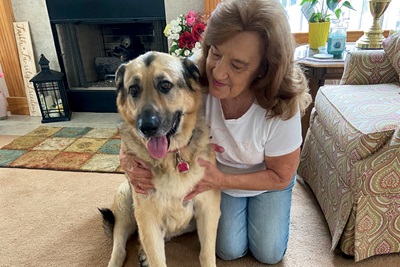
Sitting near sun-filled windows in her New Baltimore home, Margo Chilcott is grateful to be alive. When pancreatic cancer struck at age 79, she made a choice: No chemotherapy. No radiation. Only surgery. To her surprise, the Clinical Director of Henry Ford’s Pancreatic Cancer Center, David Kwon, M.D., promised to advocate for her decision.
Before her diagnosis, Margo walked three miles daily and cared for her three-year-old great grandson several days each week. Plus, she taught kids about faith formation at her church. But Margo suffered from back pain and gradually lost her appetite. When she saw a physician not affiliated with Henry Ford, her gallbladder was checked, and she was told not to worry.
Still in pain three months later, Margo’s daughter took her to the Henry Ford emergency room in Macomb. She had a CT scan and then sat in the ER for four hours. Finally, a doctor pulled back the drape.
“He was young and had tears in his eyes. He said they kept running tests. Then he told me I had pancreatic cancer,” says Margo. “I froze. I couldn’t believe it.”
Margo was admitted to the hospital where a biopsy and MRI scan were done to determine the extent of the cancer. Treatment was planned for the stage 2 pancreas adenocarcinoma, and Margo agreed to have surgery, chemotherapy and radiation therapy.
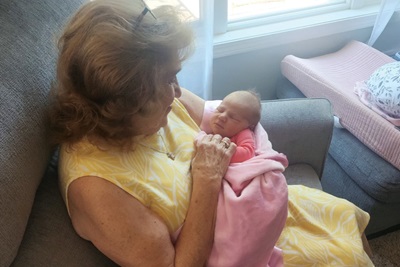
However, Margo kept thinking about loved ones who were very sick from chemotherapy. “I prayed really hard and asked God for direction,” says Margo. “The day before the chemotherapy port was to be inserted, I told them that I wasn’t going to do chemo or radiation. I was almost 80, and I’ve had a good life, even though some of it was hard. I didn’t want to be sick and have my family cooking, cleaning and caring for me.”
Dr. Kwon had multiple conversations with Margo and her family, explaining that the best chance for long-term survival was to undergo a combination of chemotherapy and surgery. However, she did not want to deal with the quality-of-life issues and the side effects of chemotherapy. Whatever decision she made, she had to be comfortable.
“Margo didn’t make an impulsive decision. She understood the risks,” says Dr. Kwon. “She was a very informed patient who took her care into her own hands. She listened to the pros and cons of each treatment modality, and partnered with us to make the decision that was right for her. Having a wonderful patient such as Mrs. Chilcot who made an informed decision, I chose to support her. I think all providers need to be fully supportive of their patients. Oftentimes, we forget how difficult some of our treatments can be and how they can affect a patient’s quality of life.”
For patients who are advanced in age and given the diagnosis of pancreas adenocarcinoma, sometimes only one option for treatment is advised due to concerns about confounding medical frailty or significant medical problems. If only one intervention can be tolerated, surgery alone may render the patient with some long-term benefit, says Dr. Kwon.
Margo had asked Dr. Kwon to allow a priest or minister to pray with her before the surgery, but neither were available that morning. “So, Dr. Kwon held my hands and said, ‘Although we are not of the same denomination, we share a similar faith in God.’ Then he said the most wonderful prayer.”
During Margo’s surgery, Dr. Kwon removed her spleen and part of the pancreas. After a four-day stay in the hospital, Margo went home with an eight-inch incision. For a couple months, most foods tasted like tin, and she could only eat small amounts. Insufficient enzymes prevented digestion and absorption of fat, causing flatulence and other digestive problems.
“I developed diabetes, and now I’m learning a new way of eating,” says Margo who occasionally gives in to a craving for a Coney Island hot dog.
To feel good about herself during recovery, she relied on decades-old advice from her mom, “’Get dressed, put on your makeup and do your hair. Don’t be a slob,’” laughs Margo.
Our team of pancreatic cancer experts work together to ensure you receive an accurate diagnosis and treatment plan based on your unique needs.
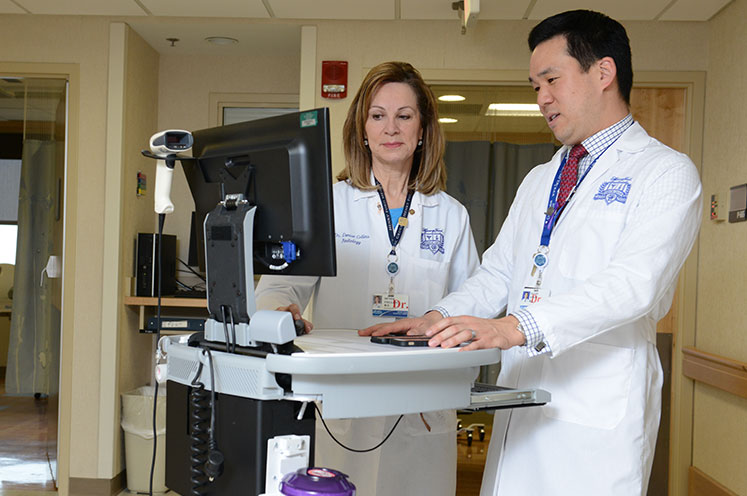
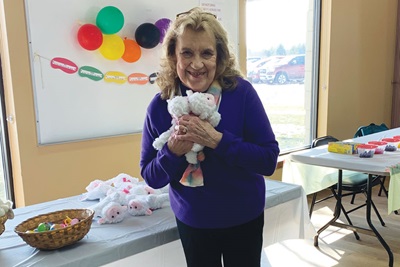
Providing extra care, Margo’s 35-year-old grandson moved into her home. Her daughter, sister and other family members often cleaned and did errands. “They did it behind my back, and they tolerated my mood swings. That’s family love,” says Margo who has seven grandchildren.
“Going through this process has opened my eyes. I look at life differently. Before, I wanted to go shopping and decorate. Now, I’m happy with what I have. I just want to make good memories with my family,” says Margo. “I’ve learned to stay calm and walk away from anger. I can live for today, and tomorrow will take care of itself. God will provide and people will pool together when they have to.”
Margo says she would recommend Henry Ford to anyone. “You’ll hit the ruts in any hospital. But we were treated with lots of respect. The doctors and nurses were willing to answer questions and they never rushed us,” says Margo.
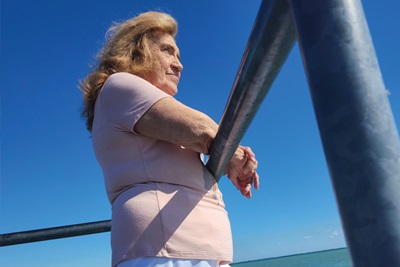
Margo advises others to stay calm and stay away from negativity about cancer. Think positive thoughts. Every cancer patient is different. Chemotherapy and radiation can help people depending on your age, your body and what you want out of life.
Every morning, Margo has a fresh start as she looks for ways to make the most of her life. She recently celebrated her granddaughter’s graduation from nursing school and plans to travel. Maybe California. Maybe only 20 miles from home. But wherever life takes her, she’ll be grateful to take it one day at a time.
We use cookies to improve your web experience. By using this site, you agree to our Terms of Use. Read our Internet Privacy Statement to learn what information we collect and how we use it.